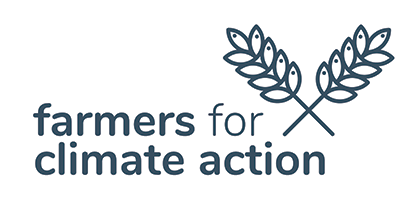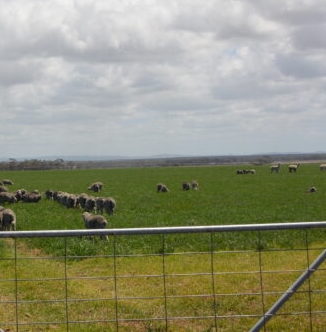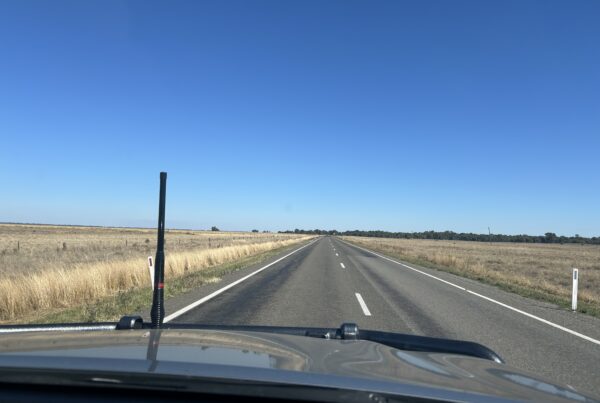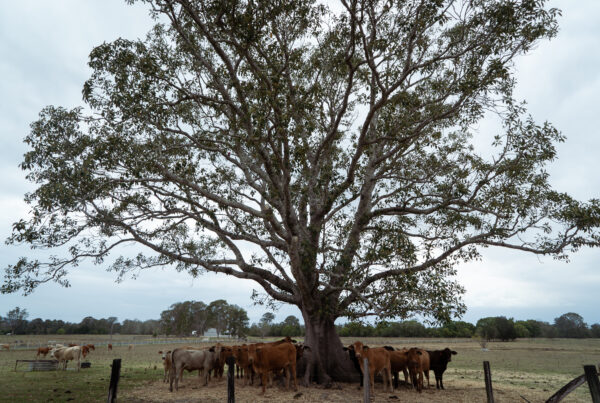24 August 2023
Farmers for Climate Action submission: Inquiry into the impact of climate change on Queensland agricultural production
Farmers for Climate Action thanks the Queensland State Development and Regional Industries Committee for the opportunity to provide a submission on the impact of climate change on Queensland agricultural production.
About Farmers for Climate Action
Farmers for Climate Action is a movement of farmers, agricultural leaders and rural Australians working to have Australia adopt strong climate policies by growing the number of farmers, farming communities and elected representatives championing ambitious action.
We represent 8,000 farmers across Australia, and our supporter base includes more than 45,000 Australians committed to climate action for agriculture. In Queensland, we have 860 farmers in our network across the state, and approximately 400 ag industry workers.
Background
Queensland, more than other states and territories, has greater exposure to the impacts of climate change. Historically, Queensland has endured more extreme weather patterns than other states and the modelling shows that this is likely to increase. Climate-warming trends are driving an increase in the frequency, intensity and duration of all extreme weather events including droughts, floods, heatwaves, fire and the intensity of cyclones.
Climate change poses a serious and ongoing risk to the Australian agricultural sector’s viability which, in turn, impacts our long-term food security and the sustainability of regional communities. Agriculture is the most vulnerable sector to climate impacts and projected productivity declines are likely to impact all subsectors. Changes in seasonal conditions have already reduced farm profits by an average of 23% over the period 2001 to 2020.
Farmers for Climate Action has focussed this submission on what our farmers see as practical risks and opportunities where the Queensland Government can have the greatest impact on securing a prosperous agricultural future in Queensland. Farmers for Climate Action will leave detailed comments on the impacts of climate change and variability on production to the research community.
Renewable energy
One of the key opportunities for diversified income to farming communities is through renewables. However, there are also significant risks of community acceptance of large-scale renewable and transmission infrastructure on farms, as is increasingly playing out across the country.
Resilience is crucial for farmers in an increasingly unpredictable climate, so electrification and adopting renewables can help build this: reducing costs (and their volatility) and supply chain risks, creating redundancies, and generating income streams.
Farmers for Climate Actions’s 2022 report, Farm Powered, outlines our recommendations for renewables as well as benefits for farmers, notably that renewable energy can dramatically reduce costs for farmers by up to 85%.
Queensland could lead the way by providing a mechanism for improved benefit-sharing arrangements for transmission hosts and communities, including higher annual payments to hosts, payments to impacted neighbours, and meaningful funding models for direct community benefit programs.
Farmers for Climate Action encourages the Queensland Government to establish a framework for renewable energy companies to provide a direct % discount (minimum 20%) on electricity prices for anyone within a postcode where transmission projects are undertaken. It is important for the social licence of the rollout to provide community benefit, not just individual benefit. The social impacts of not doing so can be seen by the community pushback in some Queensland communities where carbon farming has impacted the region, but only individual landholders have been rewarded.
Farmers for Climate Action congratulates the Queensland government for the $300,000 per kilometre transmission line payments to landholders, the most generous offer to date of any state. This up-front payment will be a huge incentive for landholder support for the crucial rollout of transmission line infrastructure.
Extension and adoption
While there is further research and development required in climate mitigation and adaptation, right now the most urgent need is to engage landholders with extension and adoption programs.
Engaging with communities, not in a shallow consultative way, but from the very beginning about the strategies and options available to them is essential for any desired behaviour
change. Engaging landholders in genuine co-creation for future solutions is not only effective in terms of adapting to climate change risks but also creates social acceptance. Ultimately it is the farming communities that have to adapt and sustain major policy changes in the long-term.
A 2022 survey undertaken by Farmers for Climate Action found that although 93% of respondent farmers expressed a willingness to change farming practices, 70% have not yet been involved in any extension program. Channelling investment into extension will help to bridge the gap between this willingness and actual on-farm uptake of new practices.
An important first step to implementing changes on farms is for landholders to understand their farm’s carbon balance. The Queensland Government should invest in extension to encourage more farmers to baseline their farms. Farmers for Climate Action understands a number of tools that will be free to farmers are under development across commodities that could be used, with the assistance of extension support direct to farmers.
An important role of government-led and funded adoption is to inform landholders about available tools and incentives, such as the Renewable Energy Toolkit developed by the Queensland Farmers Federation and the Queensland Department of Energy & Public Works.
Markets and incentives
Queensland’s Land Restoration Fund (LRF) is a strong framework that importantly seeks to reward co-benefits to avoid unintended consequences of a narrow focus on carbon. Continued work to simplify this scheme to enable more farmers to access it would be a huge benefit to the natural environment and climate. Farmers for Climate Action strongly advocates for rewarding farmers for protecting biodiversity. In a recent survey we conducted, 60% of farmers who responded said they would participate in a market for protecting biodiversity.
Incentives have a role to play in helping with the rapid uptake of technologies or practices that are needed. One example that Farmers for Climate Action would like to see subsidies for is battery storage on farms. A joint state and federal pilot could be led by Queensland to demonstrate the ability of the farming sector to provide storage. Currently batteries typically have a ten-year payoff period. If incentives could halve the investment farmers have to make, the battery payoff could be five years and rapid adoption would result. The additional storage would make the grid more stable and more future-proof the energy mix changes.
Land Use Change
Farmers are undoubtedly adapting practices and getting much better at operating under dry conditions, for example, in cropping a variety of management practices including low-till cropping has focussed on preserving soil moisture as an adaptation to reduced growing season rainfall.
Longer-term predictions however will result in some regions no longer being suitable for traditional production in those regions.
The logistics of changing production based on climatic regional changes should be a key consideration for Queensland now to ensure that alternative economic alternatives are developed and community transition phased at a pace that allows for a socially and economically fair transition.
This needs to be done in a holistic systems approach with consideration for various land uses across the state. Already certain regions are becoming harder to sustain traditional production and a systems look at regional suitability for agricultural production, ecosystem services and carbon farming should be undertaken in a genuinely consultative manner.
Farmers for Climate Action strongly holds the position that farmland should not be converted to fossil fuel projects. Moving land out of food production into mining has a significant adverse impact on the climate. Farmers feel that the hard work they are undertaking through improved practices to sequester carbon into soils and vegetation should not be offsetting heavy industries.
Fossil fuel projects also compete for water, decreasing valuable water needed for future food security.
FCA Relevant Reports
– Our report ‘Farming Forever: A national plan for climate change and agriculture’, details how an effective national policy framework will allow us to ensure Australian farmers are prepared to deal with the changing climate and enable them to seize the economic opportunities that come from moving to a low carbon economy.
– Our report ‘Farm Powered: opportunities for regional communities in the renewable energy boom’ identifies key policy solutions, including incentivising on-farm renewables, fixing the distribution network to make it work for farming communities, support for ‘agrivoltaics’, and ensuring farming communities can fairly share the benefits of transmission line infrastructure.
– Our report by EY ’How can Australia’s agriculture sector realise opportunity in a low emissions future?’ explores how ag can reach Net Zero by 2040.
– Our report ‘Fork in the Road: impacts of climate change on our food supply’ examines the current and growing risks and vulnerabilities in Australia’s food supply chain arising from climate change.
– Our webinar on the Nature Repair Market provides a farmers perspective and insights into how to drive on-farm biodiversity and looks at the results of an extensive survey we carried out with our farmers on increasing biodiversity on farm.
Farmers for Climate Action thanks the State Development and Regional Industries Committee for the opportunity to share our reflections. We are happy to discuss our submission with you at your convenience.
Contact:
Kitty Walker
Strategy Director
Farmers for Climate Action







